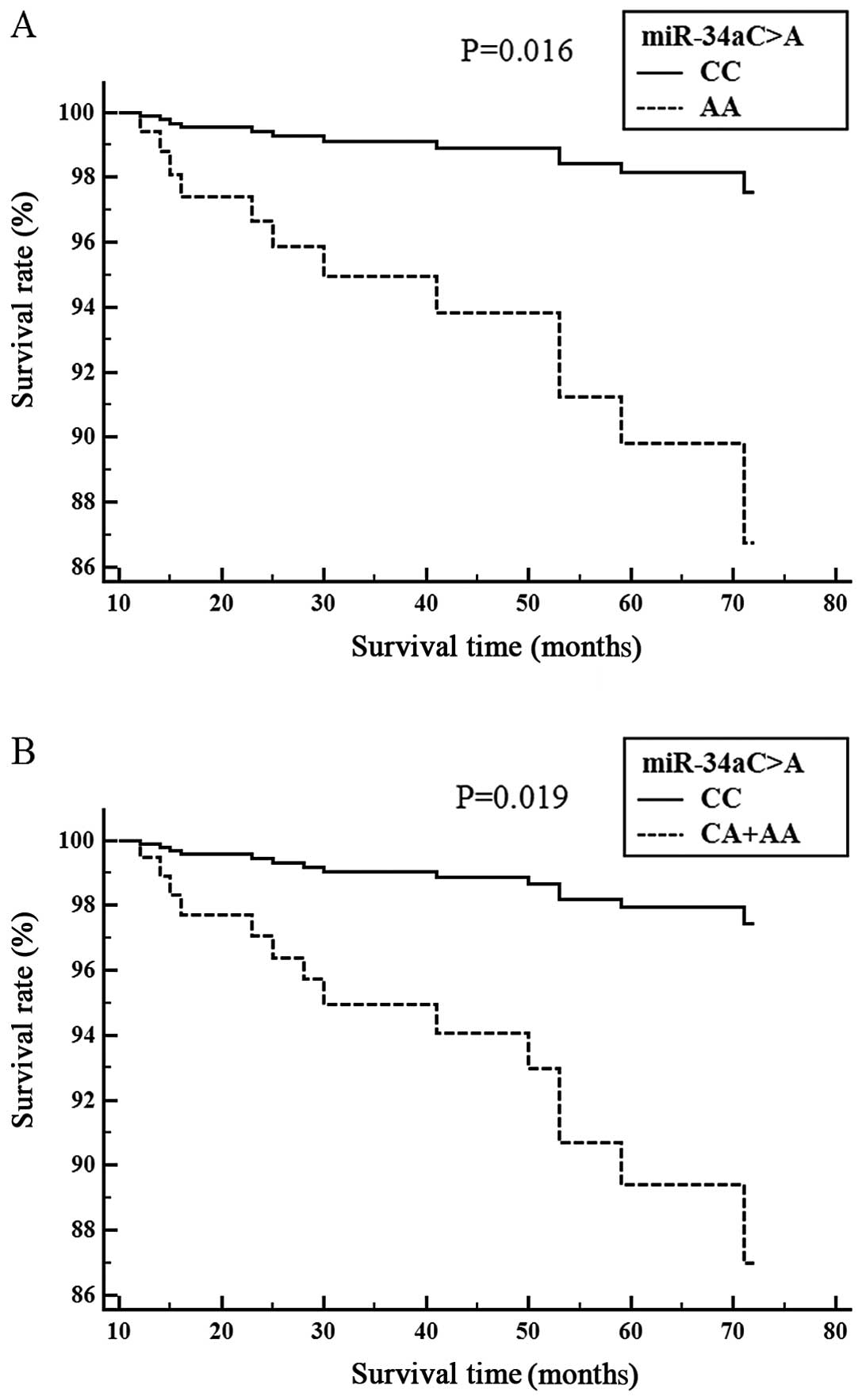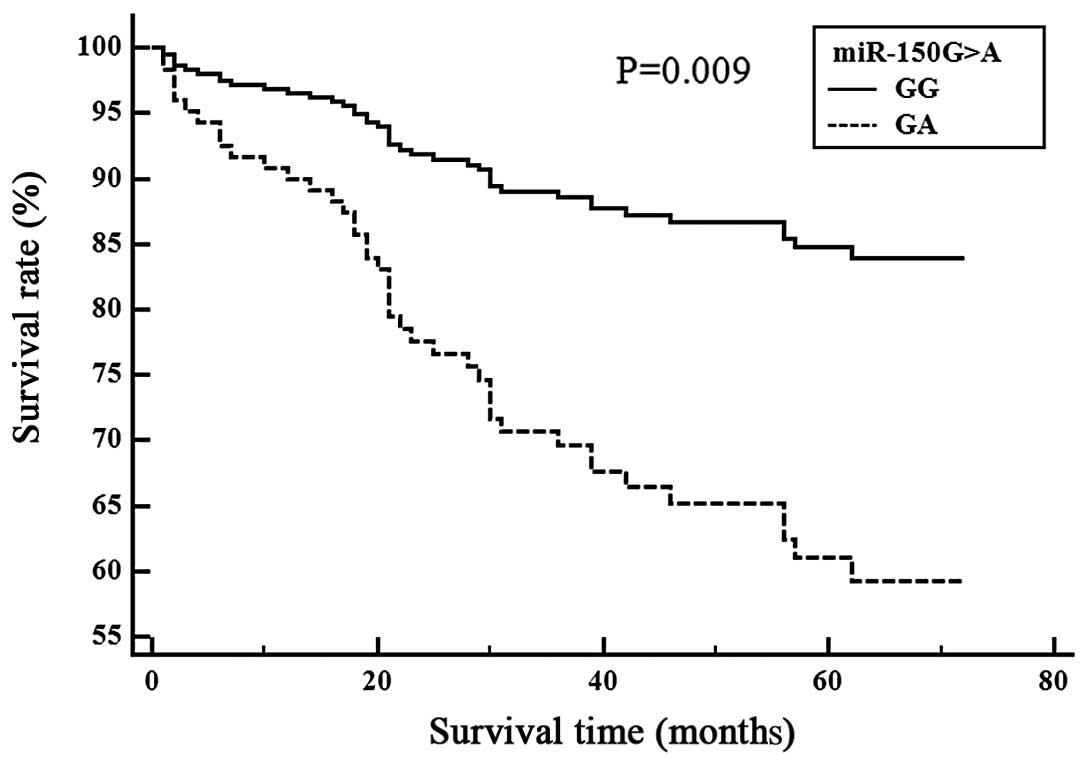|
1
|
Donnan GA, Fisher M, Macleod M and Davis
SM: Stroke. Lancet. 371:1612–1623. 2008. View Article : Google Scholar : PubMed/NCBI
|
|
2
|
Goldstein LB, Adams R, Becker K, Furberg
CD, Gorelick PB, Hademenos G, Hill M, Howard G, Howard VJ, Jacobs
B, et al: Primary prevention of ischemic stroke: A statement for
healthcare professionals from the Stroke Council of the American
Heart Association. Circulation. 103:163–182. 2001. View Article : Google Scholar : PubMed/NCBI
|
|
3
|
Mustacchi P: Risk factors in stroke. West
J Med. 143:186–192. 1985.PubMed/NCBI
|
|
4
|
Arboix A: Cardiovascular risk factors for
acute stroke: Risk profiles in the different subtypes of ischemic
stroke. World J Clin Cases. 3:418–429. 2015. View Article : Google Scholar : PubMed/NCBI
|
|
5
|
Mohr JP, Caplan LR, Melski JW, Goldstein
RJ, Duncan GW, Kistler JP, Pessin MS and Bleich HL: The Harvard
Cooperative Stroke Registry: A prospective registry. Neurology.
28:754–762. 1978. View Article : Google Scholar : PubMed/NCBI
|
|
6
|
Cosemans JM, Angelillo-Scherrer A,
Mattheij NJ and Heemskerk JW: The effects of arterial flow on
platelet activation, thrombus growth, and stabilization. Cardiovasc
Res. 99:342–352. 2013. View Article : Google Scholar : PubMed/NCBI
|
|
7
|
Shah AB, Beamer N and Coull BM: Enhanced
in vivo platelet activation in subtypes of ischemic stroke. Stroke.
16:643–647. 1985. View Article : Google Scholar : PubMed/NCBI
|
|
8
|
Sharma SC, Vijayan GP, Suri ML and Seth
HN: Platelet adhesiveness in young patients with ischaemic stroke.
J Clin Pathol. 30:649–652. 1977. View Article : Google Scholar : PubMed/NCBI
|
|
9
|
O'Malley T, Langhorne P, Elton RA and
Stewart C: Platelet size in stroke patients. Stroke. 26:995–999.
1995. View Article : Google Scholar : PubMed/NCBI
|
|
10
|
George JN: Platelets. Lancet.
355:1531–1539. 2000. View Article : Google Scholar : PubMed/NCBI
|
|
11
|
Pease DC: An electron microscopic study of
red bone marrow. Blood. 11:501–526. 1956.PubMed/NCBI
|
|
12
|
Ambros V: The functions of animal
microRNAs. Nature. 431:350–355. 2004. View Article : Google Scholar : PubMed/NCBI
|
|
13
|
Bartel DP: MicroRNAs: Target recognition
and regulatory functions. Cell. 136:215–233. 2009. View Article : Google Scholar : PubMed/NCBI
|
|
14
|
Aumiller V and Forstemann K: Roles of
microRNAs beyond development - metabolism and neural plasticity.
Biochim Biophys Acta. 692–696:2008.1779
|
|
15
|
Merkerova M, Belickova M and Bruchova H:
Differential expression of microRNAs in hematopoietic cell
lineages. Eur J Haematol. 81:304–310. 2008. View Article : Google Scholar : PubMed/NCBI
|
|
16
|
Carissimi C, Fulci V and Macino G:
MicroRNAs: Novel regulators of immunity. Autoimmun Rev. 8:520–524.
2009. View Article : Google Scholar : PubMed/NCBI
|
|
17
|
Tan KS, Armugam A, Sepramaniam S, Lim KY,
Setyowati KD, Wang CW and Jeyaseelan K: Expression profile of
MicroRNAs in young stroke patients. PLoS One. 4:e76892009.
View Article : Google Scholar : PubMed/NCBI
|
|
18
|
Liu DZ, Tian Y, Ander BP, Xu H, Stamova
BS, Zhan X, Turner RJ, Jickling G and Sharp FR: Brain and blood
microRNA expression profiling of ischemic stroke, intracerebral
hemorrhage, and kainate seizures. J Cereb Blood Flow Metab.
30:92–101. 2010. View Article : Google Scholar
|
|
19
|
Jeon YJ, Kim OJ, Kim SY, Oh SH, Oh D, Kim
OJ, Shin BS and Kim NK: Association of the miR-146a, miR-149,
miR-196a2, and miR-499 polymorphisms with ischemic stroke and
silent brain infarction risk. Arterioscler Thromb Vasc Biol.
33:420–430. 2013. View Article : Google Scholar
|
|
20
|
Edelstein LC and Bray PF: MicroRNAs in
platelet production and activation. Blood. 117:5289–5296. 2011.
View Article : Google Scholar : PubMed/NCBI
|
|
21
|
Dangwal S and Thum T: MicroRNAs in
platelet biogenesis and function. Thromb Haemost. 108:599–604.
2012. View Article : Google Scholar : PubMed/NCBI
|
|
22
|
Goldstein LB, Jones MR, Matchar DB,
Edwards LJ, Hoff J, Chilukuri V, Armstrong SB and Horner RD:
Improving the reliability of stroke subgroup classification using
the Trial of ORG 10172 in Acute Stroke Treatment (TOAST) criteria.
Stroke. 32:1091–1098. 2001. View Article : Google Scholar : PubMed/NCBI
|
|
23
|
Kim OJ, Hong SH, Oh SH, Kim TG, Min KT, Oh
D and Kim NK: Association between VEGF polymorphisms and
homocysteine levels in patients with ischemic stroke and silent
brain infarction. Stroke. 42:2393–2402. 2011. View Article : Google Scholar : PubMed/NCBI
|
|
24
|
Jeon YJ, Kim YR, Lee BE, Choi YS, Kim JH,
Shin JE, Rah H, Cha SH, Lee WS and Kim NK: Genetic association of
five plasminogen activator inhibitor-1 (PAI-1) polymorphisms and
idiopathic recurrent pregnancy loss in Korean women. Thromb
Haemost. 110:742–750. 2013. View Article : Google Scholar : PubMed/NCBI
|
|
25
|
Bushati N and Cohen SM: MicroRNAs in
neurodegeneration. Curr Opin Neurobiol. 18:292–296. 2008.
View Article : Google Scholar : PubMed/NCBI
|
|
26
|
Chuang JC and Jones PA: Epigenetics and
microRNAs. Pediatr Res. 61:24R–29R. 2007. View Article : Google Scholar : PubMed/NCBI
|
|
27
|
Saetrom P, Snøve O Jr and Rossi JJ:
Epigenetics and microRNAs. Pediatr Res. 61:17R–23R. 2007.
View Article : Google Scholar : PubMed/NCBI
|
|
28
|
Gao H, Guddeti RR, Matsuzawa Y, Liu LP, Su
LX, Guo D, Nie SP, Du J and Zhang M: Plasma levels of microRNA-145
are associated with severity of coronary artery disease. PLoS One.
10:e01234772015. View Article : Google Scholar : PubMed/NCBI
|
|
29
|
Lujambio A and Esteller M: CpG island
hypermethylation of tumor suppressor microRNAs in human cancer.
Cell Cycle. 6:1455–1459. 2007. View Article : Google Scholar : PubMed/NCBI
|
|
30
|
Lu J, Getz G, Miska EA, Alvarez-Saavedra
E, Lamb J, Peck D, Sweet-Cordero A, Ebert BL, Mak RH, Ferrando AA,
et al: MicroRNA expression profiles classify human cancers. Nature.
435:834–838. 2005. View Article : Google Scholar : PubMed/NCBI
|
|
31
|
Zhang H, Li Y and Lai M: The microRNA
network and tumor metastasis. Oncogene. 29:937–948. 2010.
View Article : Google Scholar
|
|
32
|
Jeyaseelan K, Lim KY and Armugam A:
MicroRNA expression in the blood and brain of rats subjected to
transient focal ischemia by middle cerebral artery occlusion.
Stroke. 39:959–966. 2008. View Article : Google Scholar : PubMed/NCBI
|
|
33
|
Fichtlscherer S, De Rosa S, Fox H,
Schwietz T, Fischer A, Liebetrau C, Weber M, Hamm CW, Röxe T,
Müller-Ardogan M, et al: Circulating microRNAs in patients with
coronary artery disease. Circ Res. 107:677–684. 2010. View Article : Google Scholar : PubMed/NCBI
|
|
34
|
Laterza OF, Lim L, Garrett-Engele PW,
Vlasakova K, Muniappa N, Tanaka WK, Johnson JM, Sina JF, Fare TL,
Sistare FD and Glaab WE: Plasma microRNAs as sensitive and specific
biomarkers of tissue injury. Clin Chem. 55:1977–1983. 2009.
View Article : Google Scholar : PubMed/NCBI
|
|
35
|
Navarro F, Gutman D, Meire E, Cáceres M,
Rigoutsos I, Bentwich Z and Lieberman J: miR-34a contributes to
megakaryocytic differentiation of K562 cells independently of p53.
Blood. 114:2181–2192. 2009. View Article : Google Scholar : PubMed/NCBI
|
|
36
|
Garzon R, Pichiorri F, Palumbo T, Iuliano
R, Cimmino A, Aqeilan R, Volinia S, Bhatt D, Alder H, Marcucci G,
et al: MicroRNA fingerprints during human megakaryocytopoiesis.
Proc Natl Acad Sci USA. 103:5078–5083. 2006. View Article : Google Scholar : PubMed/NCBI
|
|
37
|
Barroga CF, Pham H and Kaushansky K:
Thrombopoietin regulates c-Myb expression by modulating micro RNA
150 expression. Exp Hematol. 36:1585–1592. 2008. View Article : Google Scholar : PubMed/NCBI
|
|
38
|
Georgantas RW III, Hildreth R, Morisot S,
Alder J, Liu CG, Heimfeld S, Calin GA, Croce CM and Civin CI:
CD34+ hematopoietic stem-progenitor cell microRNA
expression and function: A circuit diagram of differentiation
control. Proc Natl Acad Sci USA. 104:2750–2755. 2007. View Article : Google Scholar
|
|
39
|
Ramsay RG: c-Myb a stem-progenitor cell
regulator in multiple tissue compartments. Growth Factors.
23:253–261. 2005. View Article : Google Scholar : PubMed/NCBI
|
|
40
|
Lu J, Guo S, Ebert BL, Zhang H, Peng X,
Bosco J, Pretz J, Schlanger R, Wang JY, Mak RH, et al:
MicroRNA-mediated control of cell fate in megakaryocyte-erythrocyte
progenitors. Dev Cell. 14:843–853. 2008. View Article : Google Scholar : PubMed/NCBI
|
|
41
|
Barnett HJ: Platelet and coagulation
function in relation to thromboembolic stroke. Adv Neurol.
16:45–70. 1977.PubMed/NCBI
|
|
42
|
Kalendovsky Z, Austin J and Steele P:
Increased platelet aggregability in young patients with stroke.
Diagnosis and therapy. Arch Neurol. 32:13–20. 1975. View Article : Google Scholar : PubMed/NCBI
|
|
43
|
van Rooy MJ and Pretorius E: Metabolic
syndrome, platelet activation and the development of transient
ischemic attack or thromboembolic stroke. Thromb Res. 135:434–442.
2015. View Article : Google Scholar : PubMed/NCBI
|
|
44
|
Grabe N: AliBaba2: Context specific
identification of transcription factor binding sites. In Silico
Biol. 2:S1–S15. 2002.PubMed/NCBI
|
|
45
|
Momoeda M, Kawase M, Jane SM, Miyamura K,
Young NS and Kajigaya S: The transcriptional regulator YY1 binds to
the 5′-terminal region of B19 parvovirus and regulates P6 promoter
activity. J Virol. 68:7159–7168. 1994.
|
|
46
|
Lee GR: Role of YY1 in long-range
chromosomal interactions regulating Th2 cytokine expression.
Transcription. 5:e279762014. View Article : Google Scholar
|
|
47
|
Funahashi N, Hirota Y, Nakagawa K, Sawada
N, Watanabe M, Suhara Y and Okano T: YY1 positively regulates human
UBIAD1 expression. Biochem Biophys Res Commun. 460:238–244. 2015.
View Article : Google Scholar : PubMed/NCBI
|
















